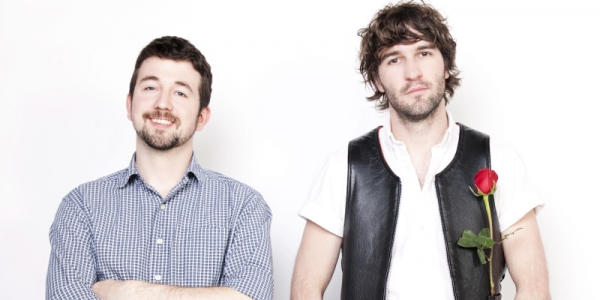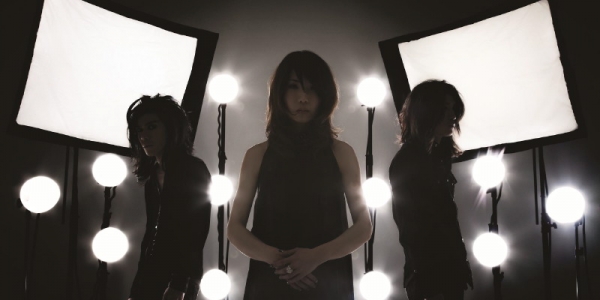“Well to be honest with you, we didn’t really know that anyone knew about our band down there,” he reasons. “Maybe that sounds really silly, but we’d asked about going there and the powers that be in the booking world didn’t really seem to think that we were well known down there on Post-Nothing. But with Celebration Rock, that’s when we started doing a lot of press, and that’s when people started asking, ‘How come you guys haven’t been here yet?’ And we were kind of shocked to hear that, knowing that we were missing out on all the potential shows we could have had down there. We just blew it, basically. We’re dummies.”
With an impeccable canon of two albums forged since 2009, the band have honed an ethos of sporadic recording in between a prolific touring schedule. “I think we feel a lot more comfortable playing live, and we’ve defined ourselves as a live band for a very long time. I don’t think either of us thought we were the best musicians or songwriters or singers, but we took pride in the fact that we put as much of ourselves into every show as humanly possible – playing with as much passion and energy as we could every night,” he explains. “As time goes on, we’re really getting comfortable with the whole studio environment. At this point, we’ve played around 500 shows and we’ve only record two albums and a couple of EPs. It’s just a balance of experience, and it’s skewed so far to the touring side of things so that’s where we feel more comfortable.”
Playing together since the mid-2000s, Prowse’s and guitarist-vocalist Brian King have maintained and fostered a considerable musical bond. “When you play in a band with somebody and you feel that you really click musically, it’s a pretty special thing. Brian and I felt that when we were just friends first starting to play. It’s a hard thing. It’s common for four or five friends to get together and start a band, and all of those people have totally different ideas of what they want the band to sound like. I feel like with Brian, not that all our musical tastes are in line, we definitely had a lot of bands we an influence on both of us.
“That was the music we wanted to make. When you’ve been playing music as long as we have, things become intuitive. When we were recording Celebration Rock, it was hard knowing we had to follow-up Post-Nothing. But in some ways, so many things became so natural to us. If we had a spark of an idea, we knew where to go with it.”
Despite the band sticking to their two-piece guns, Japandroids manage to emanate a resounding brand of power-anthem which is bolstered by an overwhelming impulse for crowd participation. “I think that was something we stumbled upon. We both wanted to play high energy music, and we’re both suckers for a good hook,” Dave reveals.
“But as time goes on and you play 200 shows a year, a very natural things happens where you see which songs get a better response. Before Post-Nothing even really hit the media, we knew that Young Hearts Spark Fire was the strongest song on that album. Then those convictions were proven when we began to play the song live. For Celebration Rock, we basically wanted to have that kind of feeling you get for five minutes of the show expanded into the duration of the album. We pushed ourselves to make a consistently strong album all the way through, and how it would translate into the live dynamic. We wanted to make this full blown sonic assault, that no matter which song we played off Celebration Rock the crowd would be just as excited. That’s what we were striving for, that sing-a-long, anthemic nature. It’s quite obvious that the people coming to Japandroids shows go there to participate, and that’s something quite special that we stumbled into,” he states. “To be honest, we’re pretty reliant on that. Once you experience a crowd of people singing along, you start to really crave it. We become addicted to that feeling.”
The thread of nostalgic themes throughout Japandroids’ work belies their youth. “I think when the lyrics were written for Younger Us, it was so obviously nostalgic even from the title, but we weren’t really aware of that. I think to some extent it’s not necessarily taking the fatalistic view, that once you get old you can’t be like you were when you were young. But it’s that craving of that feeling that you have to be nostalgic about. Interpretation of lyrics is more up to the audience than the songwriter, once you release it out into the world it’s not yours anymore,” he philosophises, channelling Barthes.
BY LACHLAN KANONIUK

